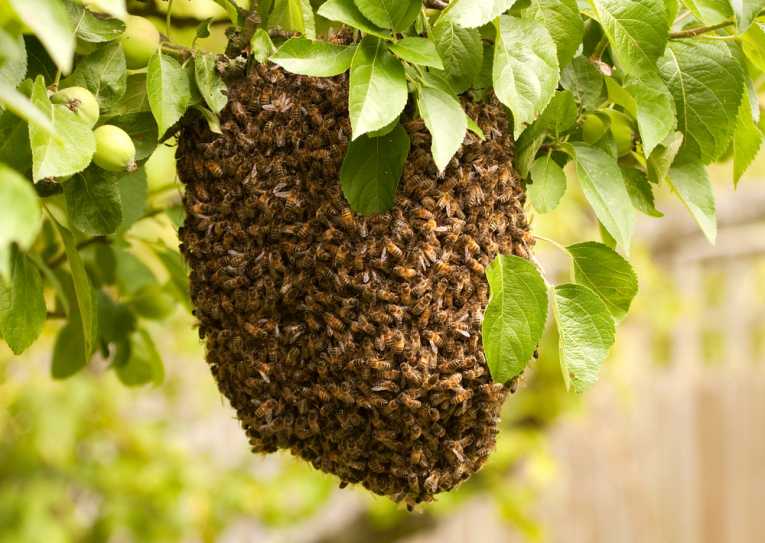Seeds coated with neonicotinoid insecticides could plan a significant role in honeybee colony collapse disorder, says an article in the journal Environmental Science & Technology. Although a range of other factors seem to collectively cause colony collapse disorder, understanding this factor's role brings scientists one step closer to understanding how to prevent colony collapse.
European farmers have used seeds coated with neonicotinoid insecticides since the 1990s, when the introduction of these seeds coincided with significant drops in the population of bee colonies. In the U.S., where one-third of honeybee hives disappear every year, most corn seeds and half of all soybean seeds are coated with neonicotinoid insecticides, says Christian Krupke, associate professor of entomology at Purdue University, who has co-authored another study examining methods of honeybee exposure to these insecticides.
The seed preparation and planting process itself brings bees into contact with the insecticide. First, seeds that have been coated with insecticide are coated in talc, which eliminates their stickiness so they can move within the planting mechanism's vacuum system. Then, farmers use pneumatic drilling machines to plant the seeds. The machines cause the seeds to be sucked into the soil, which expels a current of air. The released air carries insecticide particles with it, born by the extremely light talc dust. The particles then come into direct contact with bees. Scientists had previously believed bees may come into contact with the insecticide by gathering pollen from flowers on which it has landed, but this study strongly suggests that insecticide particles land directly on the bees themselves as they fly across fields.
"Significant concentrations of insecticide" have been found 10 meters from drilling machines, say the authors of the study published in Environmental Science & Technology. "These particles are characterized by high atmospheric mobility and can be efficiently intercepted by the flying bees," they continue. Neonicotinoid insecticides with heavier particles that are less likely to be carried by the wind may have a less severe impact on honeybees, they add.
In Italy, no colony collapse was reported after the country banned neonicotinoid insecticides, according to the authors.
Colony collapse disorder impacts agricultural systems as well as natural ecosystems worldwide, with the potential to affect global food security as well as the pollination of wild plants.










